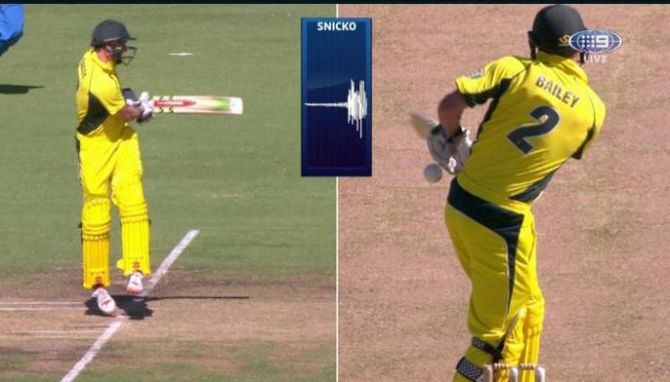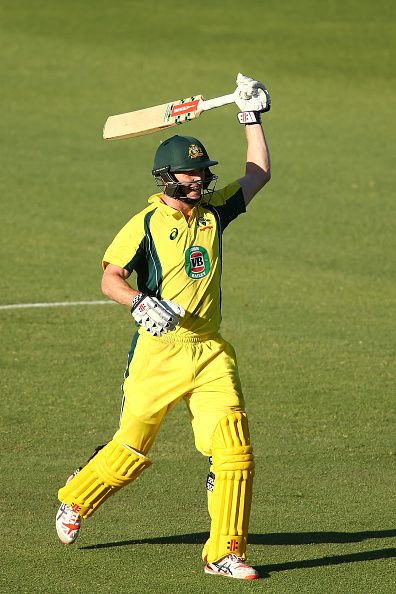- Did India's reluctance to accept the Decision Review System cost them the first ODI against Australia in Perth?
- We are still not convinced with DRS. It should be a decision-making system. Too many things are involved, need to make it more simple: Mahendra Singh Dhoni.

India's reluctance to accept the Decision Review System in its current form cost them what would have been a crucial, match-changing wicket in their five-wicket defeat to Australia in the first ODI of the five-match series, at the WACA ground in Perth, on Tuesday.
The home side was in trouble at 21 for 2 in the fifth over, chasing 310 for victory, when debutant quick Barinder Sran and India's fielders appealed for a leg-side catch off the first delivery George Bailey faced.
A muted appeal from captain and wicketkeeper Mahendra Singh Dhoni may have contributed to the not out decision from umpire Richard Kettleborough, but television replays showed a clear deflection off Bailey's glove.
With the Board of Control for Cricket in India firm in its stance against the DRS in its current form, the tourists were not able to challenge the decision and Bailey continued his innings.
The former Australia captain took full advantage, finishing with 112 and sharing a 242-run stand with captain Steve Smith, as Australia chased down the target in the final over.

"It would have been interesting to have a look at it on DRS, but we're not the team that doesn't want it," Bailey told Wide World of Sports following his fourth ODI century.
In the post-match press conference, Dhoni stuck to his stance on the review system, also accepting he wasn't 100 per cent sure Bailey had gloved it.
“We are still not convinced with DRS. It should be a decision-making system. Too many things are involved, need to make it more simple,” he said.
In December, BCCI president Shashank Manohar reasserted India's stance that unless DRS is ‘foolproof’, they would continue to refuse use of the technology in bilateral series, despite other nations embracing the system.
Manohar added that the BCCI's objection to DRS only centered around the referral of leg before wicket decisions, not other dismissals.
"The BCCI was never against DRS right from my earlier tenure," he said.
"In 2011, when we had the meeting, the person in charge of DRS was not able to satisfy our queries. So until it is foolproof, we would not accept it."
The DRS was at the centre of controversy during the Australian summer, notably in the Adelaide Test against New Zealand when a reprieve was handed to Australian tail-ender Nathan Lyon, which went on to turn the match in the home side's favour. The ICC later conceded it was an error.
There was also confusion during the Hobart Test against the West Indies, when a not out LBW decision was upheld despite the Eagle Eye ball-tracking technology showing a significant portion of the ball to be hitting the stumps.
That ruling was labelled 'ridiculous' by Shane Warne on Channel Nine's commentary while former Australia and Netherlands quick Dirk Nannes was equally as confused.











 © 2025
© 2025